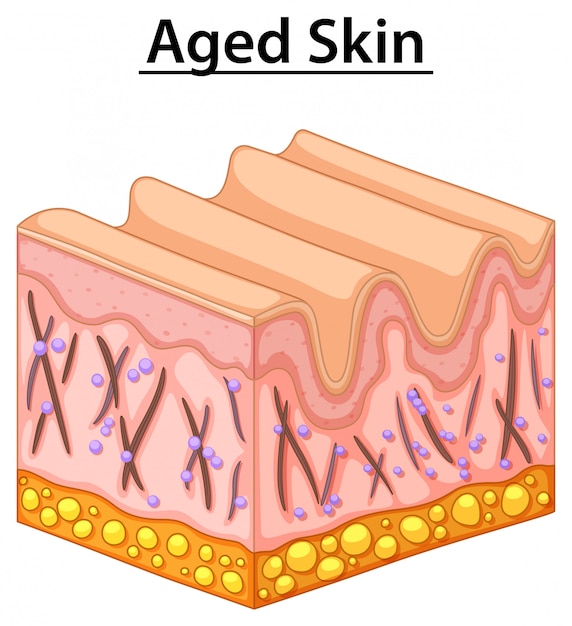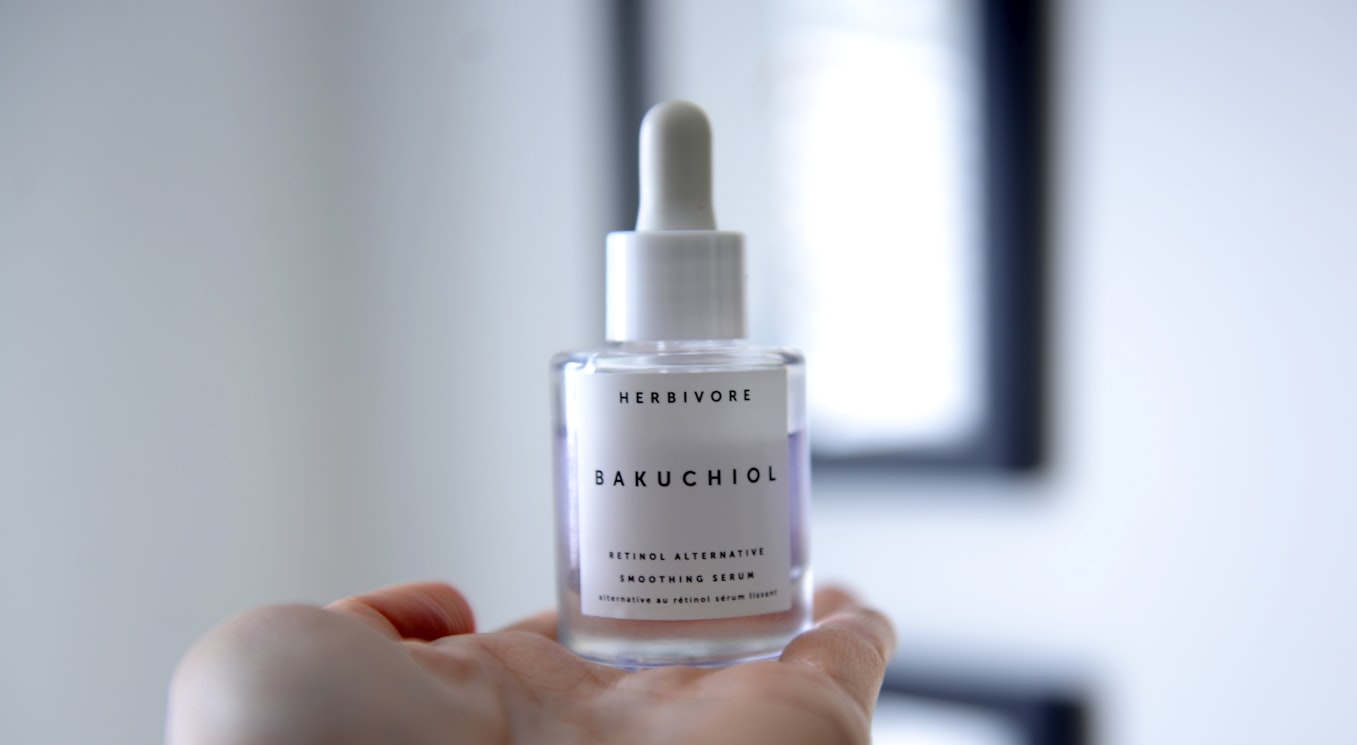Aging is often a sensitive issue, particularly with women. The first signs of aging are usually seen on the skin. Apart from the natural aging process, your skin also undergoes photo-aging due to UV damage caused by sun exposure. The most common signs of aging include fine lines, dark spots, wrinkles, dull complexion, and dry skin.
Women all over the world desire to have smooth, youthful skin. And in this quest, they use several anti-aging creams and over-the-counter products to treat and prevent different signs of aging.
These products contain several antioxidants, exfoliators, and humectant-rich ingredients like vitamin C, glycolic acid, and hyaluronic acid.
All these ingredients help delay signs of aging by increasing collagen synthesis and exfoliating dead skin cells. But one ingredient that stands out and is considered the gold standard of all anti-aging ingredients is Retinol.
What Is Retinol? How Is It Beneficial for the Skin?
Retinol is a part of the retinoid family that consists of different derivatives of Vitamin A such as retinol, retinaldehyde, tretinoin, isotretinoin, and retinoic acid that are used topically to treat or prevent several skin issues like aging, acne, hyper-pigmentation, scarring, dark spots, etc.
The importance of retinol was first discovered during World War I period and subsequent research on the ingredient showed a deficiency in Vitamin A resulted in dry skin.
As Vitamin A cannot be synthesized by the body, it has to be supplied externally to the body in the form of supplements, food, and topical treatments. Hence, different forms of retinoids have been used for treating skin defects for more than three decades now. Retinol, when applied topically to the skin, increases cell regeneration and stimulates collagen production, reducing wrinkles and fine lines.
Although retinol is less potent when compared to other forms of retinoids like tretinoin, it is also much less likely to cause skin irritation. Hence, unlike other forms of retinoids, retinol does not require a prescription from a doctor or dermatologist and is available in various cosmetic and drugstore skincare brands.
Retinol is popular among dermatologists and skin experts as the first choice of treatment for aging skin. It is used in creams and lotions in varying strengths ranging from 0.5-2%. With so many benefits, there are several myths created regarding retinol that are circulating on the internet.
If you are interested in using retinol but confused about whether those statements hold any truth, we are here to clear the air about them. Given below are seven popular myths regarding retinol along with some myth-busting facts to help make your decisions wisely.
Myth No. 1: Retinol Helps Exfoliate the Skin
Retinol often results in peeling and flaking during the initial stage of use. This has created a myth that retinol can exfoliate the skin. It is important to bear in mind that Retinol is primarily an antioxidant that helps in keeping the skin healthy.
It also helps improve the rate at which the cell turnover takes place. But, it does have the ability to dissolve or get rid of dead skin cells on its own. Hence, it is necessary to use proper exfoliating products that help the skin get rid of dead skin and prevent the pores from clogging.
Myth No. 2: It Cannot Be Used with Other Strong Active Ingredients
An anti-aging skin care routine requires a combination of different AHA/BHA and anti-oxidizing products. These ingredients are known to cause dryness. Also, each of these active ingredients requires a different pH level to function. Hence people fear that using them with retinol will worsen their skin.
However, this is far from the truth. In fact, when combined together, retinol and AHA/ BHAs can help fight hyper-pigmentation. So, retinol can be safely paired with other active ingredients to achieve better results. You can use them on alternate days or within the same skincare routine.
Myth No. 3: Retinol Can Only Be Used At Night
Many people worry that using retinol during the day will make their skin photo-sensitive, which is completely untrue. Retinol is not a photostable compound and hence breaks down when exposed to sunlight. This renders the ingredient ineffective and does not provide any benefits to your skin.
Due to this, skincare formulations with retinol are sold in tinted or opaque containers and are recommended to be used in the evening when there is no sunlight. This does not indicate that wearing retinol during the day will cause sunburns. Having said that, you must always wear broad-spectrum sunscreen during the day to prevent photo-aging.
Myth No. 4: Retinol Cannot Be Used on Sensitive Skin
Retinol and other forms of retinoids can be aggressive on the skin. Several users experience symptoms like flaking, redness, dryness, and dermatitis. This has given birth to the myth that sensitive people should never use retinol and stay as far away from it as possible.
However, there is no evidence that suggests you should avoid retinol if you have sensitive skin. Start with the lowest concentration and use it once in a week. Once your skin adapts to it, you can gradually increase the frequency of application or even move to a higher concentration if needed. Also, it is best to either mix it with your moisturizer or layer on top of it and stay cautious.

Myth No. 5: Retinol Thins Out the Skin
Thinning skin is one of the signs of the natural skin aging process. The myth of retinol thinning your skin is generated due to the common side-effect of skin peeling experienced by some people during initial use.
But, on the contrary, retinol helps thicken the epidermis by boosting collagen production and increasing the skin's plumpness. It only thins out the layer of dead skin cells known as corneocytes which helps achieve smoother skin.
Myth No. 6: You Should Use the Strongest Concentration for Best Results
A common misconception among people when using skincare products is the more they use it, the better and faster will they achieve their desired results. But, with Retinol, jumping directly to the strongest formulation will only worsen the side-effects.
Also, using more than the required quantity will lead to more annoying complications. Therefore, you should instead focus on slowly building your skin's tolerance to retinol instead of testing it with a concentrated version. Just because it worked well for someone else does not mean it will work for you too. Less is always better when comes to using retinol.
Myth No. 7: Retinol Should Not Be Used Near the Eyes
The area near the eyes has a thinner skin and should be treated gently. Any product that exfoliates the skin is usually avoided in the area under the eyes.
But, Retinol is used to delay and treat aging skin. And the first signs of aging, i.e., wrinkles and fine lines usually appear near the eyes. So, using retinol near the eyes may actually benefit that area.
Myth No. 8: You Should Stop Using Retinol If There Is Any Redness or Flaking
Redness, flaking, and peeling skin are usually signs that the product is not suitable for your skin. But, with retinol or retinoids, these symptoms are a common occurrence when you first start using it.
Your skin will take anywhere between two to four weeks to adjust to retinol. So, your skin will get worse before it gets better. Hence, don't panic if you notice any redness or flaking when you retinol for the first time.
Conclusion
Retinol is an ingredient that will tackle all your skin-related issues and help you maintain a healthy, youthful appearance. Due to its aggressive nature, it has been bad-mouthed in the media for being a harmful ingredient. But, when used with caution, it can be a stellar part of your skincare routine.
Moisturization is the key that will help you deal with side effects during the initial stage. You can start using lower doses of retinol as a preventive measure to tackle pigmentation, fine lines, and wrinkles. You should be able to see results after 5-6 months of regular use.
Pick an over-the-counter cosmetic product with comparatively lower retinoid concentration like retinol or adapalene before moving on to stronger ones like tretinoin or isotretinoin.
If you have any more concerns regarding the use of retinol for skin treatment, it is best to visit a dermatologist who can prescribe you the right form of retinoid and guide you further on how to use retinol accurately. Visit the Medi-line website to learn more about common medical solutions and their effectiveness against skin and health problems.


